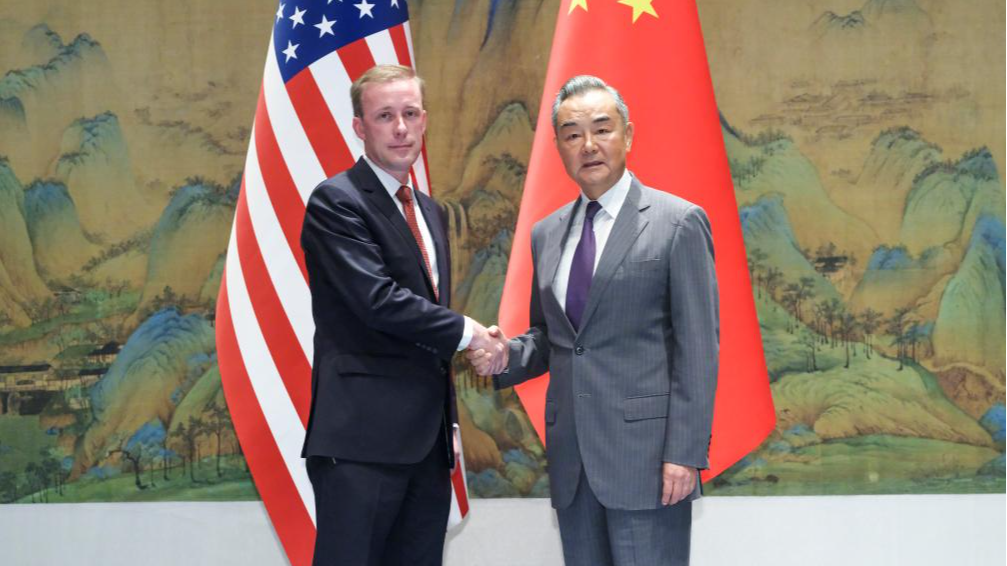WNAM REPORT: The latest round of China-U.S. strategic communication on a wide range of bilateral relations, sensitive issues and major international and regional hotspots in Beijing has been a positive signal for China-U.S. relations, according to experts.
Wang Yi, a member of the Political Bureau of the Communist Party of China Central Committee and director of the Office of the Central Commission for Foreign Affairs, held strategic communication with U.S. National Security Advisor Jake Sullivan on Tuesday and Wednesday in six sessions, totaling more than 11 hours.
It was the fourth round of strategic communication between Wang and Sullivan, with both sides calling the discussion “candid, substantive and constructive.”
Wang told Sullivan that the experience and lessons from the engagement between China and the U.S. in the past few years can be summed up as “five keys,” with one describing the key to peaceful coexistence between China and the U.S. lies in developing a right perception.
These “five keys” will help the two sides chart a better future and find a right way for the two major countries to get along with each other, said Yang Tao, director general of the Department of North American and Oceanian Affairs of the Chinese Ministry of Foreign Affairs, at a media briefing on the visit on Thursday evening.
Kishore Mahbubani, a distinguished fellow at the Asia Research Institute of the National University of Singapore, reiterated his belief that what the United States needs to develop is a comprehensive long-term strategy for managing the return of China as a great power.
The exercise on the part of the United States to keep asking itself what its key goals for relationship with China are will lead the U.S. to realize that it has to live, and cooperate, with China, Mahbubani, also a veteran Singaporean diplomat, told The Point with Liu Xin, an opinion show of CGTN.
The latest talks between Wang and Sullivan at Yanqi Lake in the northeast suburb of Beijing came following the pair’s rounds of strategic communication in Vienna in May 2023, Malta in September 2023 and Bangkok in January 2024.
The fact that the China-U.S. strategic communication was held closer to Beijing this time is a positive signal for U.S.-China relations, said Su Xiaohui, deputy director of the Department of American Studies at the China Institute of International Studies.
During the visit, Zhang Youxia, vice chairman of the Central Military Commission, met with Sullivan on Thursday. Zhang said that maintaining stability in military security between China and the United States is not only in line with the common interests of both sides, but also a universal expectation of the international community.
China and the U.S. agreed on a number of specific matters, including one on holding in due course a theater commander-level video call between the two militaries and the second round of intergovernmental dialogue on artificial intelligence.
Such institutionalized arrangements are playing a crucial role in China-U.S. relations, said Su Xiaohui.
The two sides also agreed to maintain high-level exchanges and communication at various levels, continue cooperation in such areas as anti-narcotics, law enforcement, repatriation of illegal immigrants and tackle climate change.
John Podesta, U.S. senior adviser to the president for international climate policy, is reported to travel to Beijing to meet with his Chinese counterpart, Liu Zhenmin, during the first week of September.


